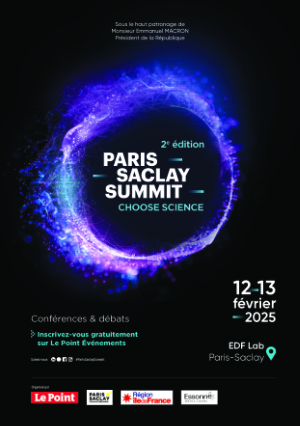Modélisation prédictive de l’altération des verres de confinement de déchets nucléaires
| ABG-124834 | Thesis topic | |
| 2024-06-28 | Public/private mixed funding |
- Ecology, environment
- Digital
Topic description
In France, vitrified waste from nuclear fuel processing is to be disposed deep underground in clay geological strata. In this confined, low-porosity environment, the chemical interaction between the glass, the corrosion products of the metal containers and the site clay should control the weathering of the glass once the medium is again saturated with water. Predicting the long-term weathering of vitrified packages requires a thorough understanding of the many interrelated reaction mechanisms involved. In practice, these mechanisms are classified according to their importance on weathering kinetics, and then integrated within models adapted to the relevant time and space scales.
This thesis focuses on the geochemical modeling of glass weathering, which is carried out using a reactive transport code (CHESS/HYTEC), a thermodynamic database and a kinetic law for glasses (GRAAL2 model, derived from the GRAAL model (Frugier et al. 2018)). This model takes into account the role of the composition of the glass weathering layer on its protective character, enabling GRAAL2 to simulate variations in weathering rate as a function of glass composition and environmental conditions.
We are looking for a student with a master's degree related to modeling or geochemistry, strong Python programming skills, and an interest in understanding processes through models. At the end of these three years, the student will have gained a strong understanding of geochemical modeling (using the CHESS code), mass transfer modeling (using the Hytec code), glass alteration modeling (with the GRAAL2 model), as well as skills in numerical programming in Python. The student will also develop a deep understanding of concepts related to deviation, error, and uncertainty. He will become familiar with issues related to the transfer of pollutants in the environment and nuclear waste management. The knowledge and skills acquired are important in various fields related to material sustainability, the environment, and modeling, including the rigorous methodologies that underlie these approaches.
Starting date
Funding category
Funding further details
Presentation of host institution and host laboratory
Le Commissariat à l'énergie atomique et aux énergies alternatives (CEA) est un organisme divers d'administration centrale (ODAC) de recherche scientifique français dans les domaines de l’énergie, de la défense, des technologies de l'information et de la communication, des sciences de la matière, des sciences de la vie et de la santé, implanté sur dix sites en France
Website :
PhD title
Country where you obtained your PhD
Institution awarding doctoral degree
Graduate school
Candidate's profile
Nous recherchons un étudiant titulaire d'un master en lien avec la modélisation où la géochimie, avec des compétences solides en programmation Python, et un intérêt pour la compréhension des processus au moyen de modèles. Cette thèse offre l'opportunité d'appliquer ces compétences à la modélisation géochimique et à la recherche sur les matériaux nucléaires. Un profil math/numérique désireux d'appliquer ses connaissances informatiques à la géochimie est également trés bienvenu.
À l'issue de ces trois années, l'étudiant aura acquis une solide maîtrise de la modélisation géochimique (avec le code CHESS), de la modélisation des transferts de matière (avec le code Hytec), de la modélisation de l'altération des verres (avec le modèle GRAAL2), ainsi que des compétences en programmation numérique en Python. Il développera également une compréhension approfondie des concepts d'écart, d'erreur et d'incertitude. L'étudiant se familiarisera avec les problématiques liées au transfert de polluants dans l'environnement et à la gestion des déchets nucléaires. Les connaissances et les compétences acquises pourront être mises à profit dans de nombreux domaines d’application liés à la durabilité des matériaux, à l'environnement, ainsi qu'aux modélisations et aux méthodologies rigoureuses qui les sous-tendent.
Vous avez déjà un compte ?
Nouvel utilisateur ?
Get ABG’s monthly newsletters including news, job offers, grants & fellowships and a selection of relevant events…
Discover our members
 Généthon
Généthon  ANRT
ANRT  MabDesign
MabDesign  Aérocentre, Pôle d'excellence régional
Aérocentre, Pôle d'excellence régional  Groupe AFNOR - Association française de normalisation
Groupe AFNOR - Association française de normalisation  CASDEN
CASDEN  Institut Sup'biotech de Paris
Institut Sup'biotech de Paris  SUEZ
SUEZ  MabDesign
MabDesign  PhDOOC
PhDOOC  Tecknowmetrix
Tecknowmetrix  ADEME
ADEME  Ifremer
Ifremer  Institut de Radioprotection et de Sureté Nucléaire - IRSN - Siège
Institut de Radioprotection et de Sureté Nucléaire - IRSN - Siège  TotalEnergies
TotalEnergies  ONERA - The French Aerospace Lab
ONERA - The French Aerospace Lab  Nokia Bell Labs France
Nokia Bell Labs France  CESI
CESI  Laboratoire National de Métrologie et d'Essais - LNE
Laboratoire National de Métrologie et d'Essais - LNE




